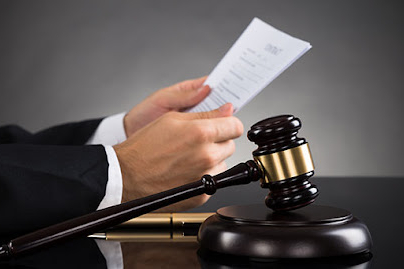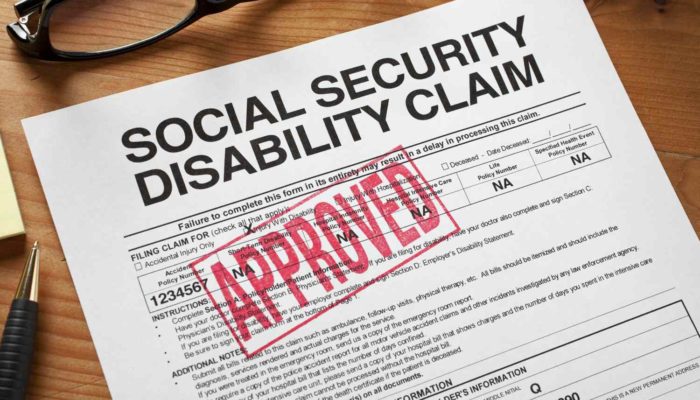Estate planning is crucial for unmarried couples to ensure that their assets are distributed according to their wishes. Without a will or trust, state intestacy laws may dictate who inherits the decedent’s property, leaving unmarried partners with nothing. Therefore, creating wills and trusts is essential for each member of an unmarried couple to provide for each other upon death.
Common Law Marriage is Not Allowed in Kentucky
Many unmarried couples choose to live in a Domestic Partnership. However, there are no provisions under the statutes of the Commonwealth of Kentucky that will automatically provide for your partner… unless you have proper Estate Planning. Registered domestic partners are not treated as spouses for federal tax purposes. While registering as domestic partners may protect rights and provide enhanced protections, it’s crucial to consult with an attorney experienced in family law and estate planning to ensure a clear understanding of the legal implications and the necessary steps to protect the partners’ interests.
So If you are in a domestic partnership you need to prepare an estate plan. There are no provisions under the statutes of the Commonwealth of Ky that will provide for your partner in case of death. This could result in the surviving partner being forced to move out of the residence that was formally shared. There are several methods of Estate Planning when it comes to what can help Domestic Partnerships. While even married or state-registered couples need an estate plan, unmarried or unregistered couples can provide important protections for a surviving partner and/or any minor children by drafting an estate plan, as well as naming the people responsible for making important decisions about their health and property. With the help of a knowledgeable Attorney, this can be rectified if you set up the following legal documents…
- Tenancy is common in Kentucky’s default co-ownership form. Two or more co-owners are tenants unless the deed that gave them the property declares a different co-ownership form. Tenants in common can have unequal co-ownership interests, and they can transfer their interests separately.
- Joint tenancy with right of survivorship. This is a legal term for a way to own assets jointly, where two or more parties have equal rights and ownership of an account or real estate. If one owner dies, the surviving owners automatically get full ownership of the asset. This would eliminate probate and is easy for your attorney to create for you.
- Last Will and Testament. When you have properly executed your Last Will and Testament, you can provide for your domestic partnership. It does require the Will to be probated and supervised by the Probate Court. As under federal law, Kentucky does not recognize domestic partners. Consequently, such partners are treated as single taxpayers so you must include them by name in your last Will and Testament.
- Legal documents you should include in your estate plan: A Power of Attorney gives your partner the legal authority to manage your affairs regarding real estate, business, finance, legal matters, and more. A healthcare directive gives your partner the ability to enforce your personal healthcare wishes should you ever become incapable of doing so yourself. Without these documents insurance companies, banks and hospitals will not recognize your partner’s authority to act on your behalf.
- Create a living trust. Like a Last Will and Testament, a Revocable Living Trust gives you complete control over your assets and ensures your partner is taken care of when you die. The biggest advantage is avoiding the delays and red tape of probate. There are no court or attorney fees after the trust is established.
Estate Planning Documents for Unmarried Couples
Unmarried couples should consider having important estate planning documents in place, including a living will with a health care proxy, a financial durable power of attorney, and a Last Will and Testament. These documents help establish and protect their preferences for important decisions and ensure that trusted individuals can make decisions on their behalf if they become incapacitated or upon death.
Tax Considerations and Asset Ownership
Unmarried couples should pay attention to how they own property or other assets together. Owning assets as joint tenants with rights of survivorship allows the surviving partner to take full ownership of the entire property by law. Updating beneficiary designations for retirement accounts is also important to ensure that the partner will inherit the accounts according to their wishes.
Contact us (859-341-2500) for a Free Consultation!
—
 About Grubbs & Landry
About Grubbs & Landry
At Grubbs & Landry, PLLC, we are dedicated to personal and friendly service. We manage our practice in an ethical, cost-effective manner to best help our clients resolve their legal issues with the least expense possible. We pride ourselves in advocating for our client in divorce, child custody, and child support matters as well as other family law matters. We are active in prosecuting personal injury cases-recovering for the injuries our clients sustain due to the negligence of others. Additionally, we help our clients prepare for the future through the preparation of Wills, Power of Attorney and Living Will.



 When an insurance company offers you a settlement, they are essentially acknowledging their client’s fault in the accident. They want you to settle to avoid litigation or going to court. Insurance companies usually do not want to get legal help involved, If you get a call from them before you have contacted your lawyer absolutely tell them you want to consult with an attorney before agreeing to settle a case. If the injuries are sustained in any kind of collision, and whether the injuries appear minor or resulted in a fatality, broken bones, paralysis, or other injuries, you should talk to an attorney before talking to an insurance agent or adjuster about the facts of the case.
When an insurance company offers you a settlement, they are essentially acknowledging their client’s fault in the accident. They want you to settle to avoid litigation or going to court. Insurance companies usually do not want to get legal help involved, If you get a call from them before you have contacted your lawyer absolutely tell them you want to consult with an attorney before agreeing to settle a case. If the injuries are sustained in any kind of collision, and whether the injuries appear minor or resulted in a fatality, broken bones, paralysis, or other injuries, you should talk to an attorney before talking to an insurance agent or adjuster about the facts of the case.
 In Kentucky, or through Social Security Administration (SSA) short-term disability insurance is not guaranteed, and there are no laws protecting employees with short-term disabilities. However, there are other benefits that an employee can use if he is temporarily disabled. A countless number of people find themselves dealing with a temporary disability that is not permanent. Because of this many people turn to their own independent short-term disability insurance policies or employer-provided short-term disability coverage. The following are some examples of short term disability options you may have…
In Kentucky, or through Social Security Administration (SSA) short-term disability insurance is not guaranteed, and there are no laws protecting employees with short-term disabilities. However, there are other benefits that an employee can use if he is temporarily disabled. A countless number of people find themselves dealing with a temporary disability that is not permanent. Because of this many people turn to their own independent short-term disability insurance policies or employer-provided short-term disability coverage. The following are some examples of short term disability options you may have… 
 If you’ve been in a car accident while working, it’s normal to be upset and anxious, especially if other people were badly injured. You may be technically at fault for the crash, but you still deserve protection. If you have any worries that your employer’s insurance company is going to throw you under the bus, contact a personal injury attorney. When you add an addition complication to a crash, it can be difficult for the average individual to make sense of who incurs liability and financial responsibility for the injured and the property damage. If someone else causes the crash and they were on the job at the time you may have to deal with a complicated third party insurance claim.
If you’ve been in a car accident while working, it’s normal to be upset and anxious, especially if other people were badly injured. You may be technically at fault for the crash, but you still deserve protection. If you have any worries that your employer’s insurance company is going to throw you under the bus, contact a personal injury attorney. When you add an addition complication to a crash, it can be difficult for the average individual to make sense of who incurs liability and financial responsibility for the injured and the property damage. If someone else causes the crash and they were on the job at the time you may have to deal with a complicated third party insurance claim. 
 Once the divorce is completed and a judgment entered, either or both spouses can appeal a trial court judge’s decision to a higher (“appellate” or “appeals”) court. Because of the deference given to the original judge, it is unusual, but not impossible, for an appeals court to overturn a judge’s decision in a divorce case. Settlement agreements usually cannot be overturned on appeal if both spouses agreed to the terms of the settlement unless there were problems with how the agreement was reached or other enforceability issues. The court places a great deal of faith in the judge’s final decision.
Once the divorce is completed and a judgment entered, either or both spouses can appeal a trial court judge’s decision to a higher (“appellate” or “appeals”) court. Because of the deference given to the original judge, it is unusual, but not impossible, for an appeals court to overturn a judge’s decision in a divorce case. Settlement agreements usually cannot be overturned on appeal if both spouses agreed to the terms of the settlement unless there were problems with how the agreement was reached or other enforceability issues. The court places a great deal of faith in the judge’s final decision.
 Adopting a child is a life-changing and complex process that requires careful navigation through legal procedures and requirements. While the journey towards adoption can be filled with ups and downs, the joy of finalizing the adoption makes it all worthwhile. To ensure a successful and smooth adoption experience, it is highly recommended to hire an adoption lawyer who specializes in adoption law. In this article, we will explore the top benefits of hiring an adoption lawyer and how they can guide you through this important journey.
Adopting a child is a life-changing and complex process that requires careful navigation through legal procedures and requirements. While the journey towards adoption can be filled with ups and downs, the joy of finalizing the adoption makes it all worthwhile. To ensure a successful and smooth adoption experience, it is highly recommended to hire an adoption lawyer who specializes in adoption law. In this article, we will explore the top benefits of hiring an adoption lawyer and how they can guide you through this important journey.
 In the state of Kentucky, the division of marital property is an important aspect of divorce proceedings. When a couple decides to end their marriage, the court is responsible for determining how the property, debts, and assets they acquired during the marriage will be divided. Kentucky follows the principle of equitable distribution, which means that property is divided fairly but not necessarily equally. This article will provide an in-depth understanding of how marital property is decided in a divorce in Kentucky.
In the state of Kentucky, the division of marital property is an important aspect of divorce proceedings. When a couple decides to end their marriage, the court is responsible for determining how the property, debts, and assets they acquired during the marriage will be divided. Kentucky follows the principle of equitable distribution, which means that property is divided fairly but not necessarily equally. This article will provide an in-depth understanding of how marital property is decided in a divorce in Kentucky.
 Whether they are on duty or off duty, police officers must obey the law. When police officers break the law, they can be punished just like you if you commit a crime. Courts have held police officers accountable for their wrongdoing, misconduct, and illegal acts. If a police officer is guilty of domestic violence, hit and run, or any other crime, a judge can sentence the officer to the same punishments as you face. The officer can serve time in prison, pay fines, and be on probation. Some of the actions that police officers take during the course of their jobs may be considered illegal, if those actions violate your civil rights.
Whether they are on duty or off duty, police officers must obey the law. When police officers break the law, they can be punished just like you if you commit a crime. Courts have held police officers accountable for their wrongdoing, misconduct, and illegal acts. If a police officer is guilty of domestic violence, hit and run, or any other crime, a judge can sentence the officer to the same punishments as you face. The officer can serve time in prison, pay fines, and be on probation. Some of the actions that police officers take during the course of their jobs may be considered illegal, if those actions violate your civil rights.
 Although disability benefits are good news for many people you will find that the process is a long and difficult one. If you have serious liabilities, you likely cannot work and you are wondering just how you are going to pay your bills. SSD (social security disability) benefits are great financial assistance to help you. However SSA receives millions of applications every year and they initially deny far more than they approve. Do not give up if your SSD application is rejected at first. You can appeal, and many applicants go on to receive the SSD benefits they deserve. However, you must remember the process can be difficult and take more time before you receive the benefits you need. It takes Kentucky courage to fight for the SSD benefits you need and deserve.
Although disability benefits are good news for many people you will find that the process is a long and difficult one. If you have serious liabilities, you likely cannot work and you are wondering just how you are going to pay your bills. SSD (social security disability) benefits are great financial assistance to help you. However SSA receives millions of applications every year and they initially deny far more than they approve. Do not give up if your SSD application is rejected at first. You can appeal, and many applicants go on to receive the SSD benefits they deserve. However, you must remember the process can be difficult and take more time before you receive the benefits you need. It takes Kentucky courage to fight for the SSD benefits you need and deserve.